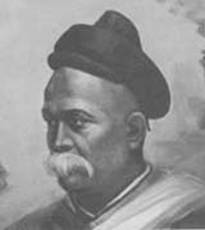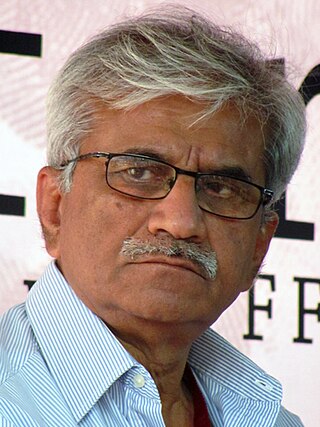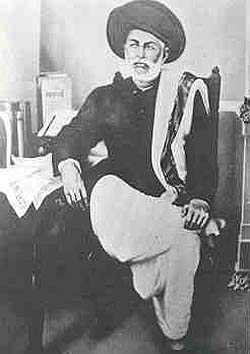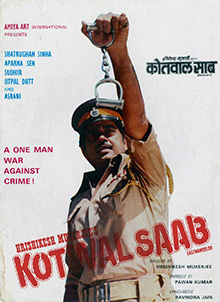Related Research Articles

Middlemarch, A Study of Provincial Life is a novel by English author George Eliot, the pen name of Mary Ann Evans. It appeared in eight installments (volumes) in 1871 and 1872. Set in Middlemarch, a fictional English Midlands town, in 1829 to 1832, it follows distinct, intersecting stories with many characters. Issues include the status of women, the nature of marriage, idealism, self-interest, religion, hypocrisy, political reform, and education. Leavened with comic elements, Middlemarch approaches significant historical events in a realist mode: the 1832 Reform Act, early railways, and the accession of King William IV. It looks at medicine of the time and reactionary views in a settled community facing unwelcome change. Eliot began writing the two pieces that formed the novel in 1869–1870 and completed it in 1871. Initial reviews were mixed, but it is now seen widely as her best work and one of the great English novels.

Pathare Prabhu is one of the Hindu communities found mainly in the Indian state of Maharashtra.

Vijay Dhondopant Tendulkar was an Indian playwright, movie and television writer, literary essayist, political journalist, and social commentator primarily in Marathi. His Marathi plays established him as a writer of plays with contemporary, unconventional themes. He is best known for his plays Shantata! Court Chalu Aahe (1967), Ghashiram Kotwal (1972), and Sakharam Binder (1972). Many of Tendulkar's plays derived inspiration from real-life incidents or social upheavals, which provide clear light on harsh realities. He has provided guidance to students studying "play writing" in US universities. Tendulkar was a dramatist and theatre personality in Maharashtra for over five decades.

Kandukuri Veeresalingam is a social reformer and writer from the Madras Presidency, British India, current Andhra Pradesh. He is considered as the Father of the Telugu Renaissance movement. He was one of the early social reformers who encouraged the education of women and the remarriage of widows. He also fought against child marriage and the dowry system. He started a school in Dowlaiswaram in 1874, constructed the 'Brahmo Mandir' in 1887 and built the 'Hithakarini School' in 1908 in Andhra Pradesh. His novel Rajasekhara Charitramu is considered to be the first novel in Telugu literature.

Rao Bahadur Mahadev Govind Ranade, popularly referred to as Nyayamurti Ranade, was an Indian scholar, social reformer, judge and author. He was one of the founding members of the Indian National Congress party and held several designations such as Member of the Bombay Legislative Council and Member of the Finance Committee at the Centre. He was also a judge of the Bombay High Court, Maharashtra.

The Chitpavan Brahmin or the Kokanastha Brahmin is a Hindu Maharashtrian Brahmin community inhabiting Konkan, the coastal region of the state of Maharashtra. Initially working as messengers and spies in the late seventeenth century, the community came into prominence during the 18th century when the heirs of Peshwa from the Bhat family of Balaji Vishwanath became the de facto rulers of the Maratha empire. Until the 18th century, the Chitpavans were held in low esteem by the Deshastha, the older established Brahmin community of Karnataka-Maharashtra region.
Chandraseniya Kayastha Prabhu (CKP) or historically and commonly known as Chandraseniya Prabhu or just Prabhu is a caste mainly found in Gujarat and Maharashtra. Historically, they made equally good warriors, statesmen as well as writers. They held the posts such as Deshpande and Gadkari according to the historian, B.R. Sunthankar, produced prominent warriors in Maharashtrian history.

Dr.Jabbar Patel is a former paediatrician and a Marathi-language theatre and film director of India. His production of Vijay Tendulkar's play Ghashiram Kotwal, in 1973 is considered a classic in Modern Indian Theatre. He has received several accolades, including seven National Film Awards, eight Maharashtra State Film Awards, seven Filmfare Awards Marathi. Patel received Filmfare Marathi Lifetime Achievement Award at 7th Filmfare Awards Marathi. He was awarded Sangeet Natak Akademi Award in 1978. In 2005, he was honoured with the V. Shantaram Award, Maharashtra's highest award in the field of cinema. In 1982, he was honoured by the Government of India with the Padma Shri, the fourth-highest civilian honour of the country.

Ghashiram Kotwal is a Marathi play written by playwright Vijay Tendulkar in 1972 as a response to the rise of a local political party, in Maharashtra. The play is a political satire, written as historical drama. It is based on the life of Nana Phadnavis (1741–1800), one of the prominent ministers in the court of the Peshwa of Pune and Ghashiram Kotwal, the police chief of the city. Its theme is how men in power give rise to ideologies to serve their purposes, and later destroy them when they become useless.Jayant Karve and an American professor Eleanor Zelliot jointly translated Ghashiram Kotwal from the Marathi into English. It was first performed on 16 December 1972, by the Progressive Dramatic Association in Pune. Jabbar Patel's production of the play in 1973 is considered a classic in Modern Indian Theatre.

Satyashodhak Samaj was a social reform society founded by Jyotiba Phule in Pune, Maharashtra, on 24 September 1873. The society endeavoured to mitigate the distress and sufferings of Dalits and women. It espoused a mission of education and increased social rights and political access for underprivileged groups, focused especially on women, peasants, and Dalits, in Maharashtra. Jyotirao's wife Savitribai was the head of women's section of the society. The Samaj disbanded during the 1930s as leaders left to join the Indian National Congress party.

Kotwal Saab is a 1977 Bollywood drama action film directed by Hrishikesh Mukherjee. An Amiya Arts production, it was produced by Pawan Kumar and had story by Bimal Dutt, with dialogue by Rahi Masoom Reza. The music director and lyricist was Ravindra Jain. The main stars were Shatrughan Sinha and Aparna Sen with a supporting cast consisting of Utpal Dutt, Asrani, David, Raza Murad, Sudhir and Ritu Kamal.

Keshav Sitaram Thackeray, was an Indian social reformer, writer and politician. He campaigned against superstitions, untouchability, child marriage and dowry. He was also a prolific author.
Samik Bandyopadhyay is a Kolkata-based critic of Indian art, theatre and film.
Panchkalshi is a Hindu community. They are one of the original native communities of Bombay (Mumbai) metropolitan area in the Konkan division of India. Since the 19th century the community has called itself Somvanshi Kshatriya Pathare (SKP).

Marathi theatre is theatre in the Marathi language, mostly originating or based in the state of Maharashtra in India, and elsewhere with Marathi diaspora. Starting in the middle of the 19th century, it flourished in the 1950s and 1960s. Today, it continues to have a marked presence in the State of Maharashtra with a loyal audience base, when most theatre in other parts of India have had tough time facing the onslaught of cinema and television. Its repertoire ranges from musicals, humorous social plays, farces, historical plays like 'Vedat Marathe Veer Daudale Saat' by Bashir Momin Kavathekar, to experimental plays and serious drama of the 1970s onwards, by Vijay Tendulkar, P. L. Deshpande, Mahesh Elkunchwar and Satish Alekar, which have influenced theatre throughout India. In the post-independence era, Bengali theatre, and Marathi theatre have been at the forefront of innovations and significant dramaturgy in Indian theatre.

The Puneri Pagadi is a distinctive style of turban, which is considered as a symbol of pride and honor in the city of Pune. It was introduced two centuries ago. Though it is a symbol of honour, the use of the pagadi has changed over the years and now it is also used on traditional days in colleges. To preserve the identity of the pagadi, there were demands from the locals to grant it a Geographical Indication (GI) status. Their demand was fulfilled and the pagadi became an intellectual property on 4 September 2009.
The Pathare Prabhu Kanchole caste is one of the two sections of the original Pathare Prabhu caste of Mumbai. The Pathare Prabhus had settled in Mumbai, and the region thereabout in the 13th century, and gained prosperity during the development of Bombay by the British in the 18th century. The Pathare Prabhu Kancholes are a few hundred in number, and this section came into existence, within the major caste, in the year 1777, over a quarrel on the occasion of a marriage ceremony in the caste. This smaller section of the main caste is known as Kanchole Pathare Prabhus, as the dispute leading to the schism in the original caste had centred about a kanchole, i.e. a small vessel used for holding sandalwood paste for the purpose of anointing, in honour, the foreheads of guests.
Ghashiram Kotwal is a 1976 Indian Marathi-language film, which is an adaptation of Vijay Tendulkar's play of the same name. Tendulkar himself wrote the screenplay. Coming at the height of the Parallel cinema movement in India, the film was an experiment in collective filmmaking. It was produced by YUKT Film Cooperative, a 16-member collective consisting mostly of graduates of the Film and Television Institute of India. The title role was played by Om Puri, who made his debut with this film. The final shot of the film lasts for more than ten minutes. According to K. Hariharan, one of the four directors of the film, this shot is unique in film history as "the world’s longest shot on a standard reel of 1,000 feet to be shot by four camera operators".
The 'Prabhu caste' or Prabhu communities are a group of related Hindu castes of Northern districts of Konkan region in Maharashtra, India. There are four such castes, all having different ritual and social status within the caste system of Maharashtra, but all of them having traditions traced back to the 12th century. They are Chandraseniya Kayastha Prabhu, Pathare Prabhu, Kanchole Prabhus and the Davane Prabhu.

Raobahadur Narayan Dinanath Velkar (1798–1870) was a 19th-century social reformer and civic leader from Bombay. He is known for his contributions to the city's intellectual and civic life and he was instrumental in establishing key institutions such as the Central Library at Town Hall and the Framji Cowasjee Institute. As one of the owners of the Bombay Times, which later became The Times of India. He was the first Indian Municipal Commissioner for Bombay's welfare in 1840.
References
- ↑ Kanupriya; Amar Nath Prasad (2006). Indian Writing in English: Tradition and Modernity. ISBN 9788176257176.
Moroba Kanhoba Vijaykar's novel Ghashiram Kotwal appeared in 1873. Ghashiram is not an imaginative character of literature.
- ↑ Crossing Thresholds: Feminist Essays in Social History. 2007. p. 350.
Perhaps the most highly publicized was the ill-fated marriage of Moroba Kanhoba Vijaykar, one of the earliest members of the Society, in 1870. It resulted in the family's excommunication by his Pathare Prabhu caste, despite reformist support. But most unfortunate was the tragedy that struck before a year was over. The newly-weds were found dead in the neighbouring...